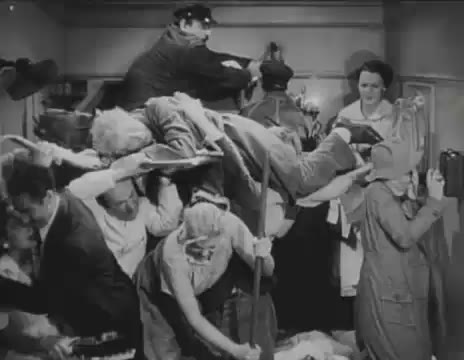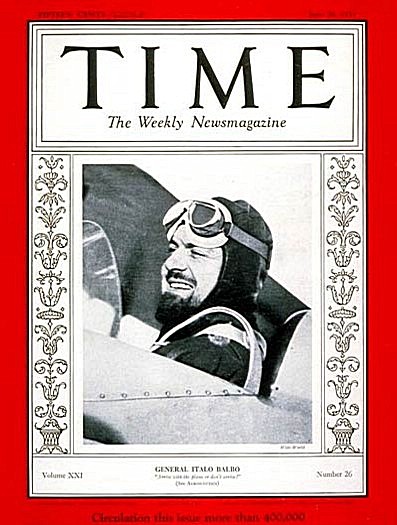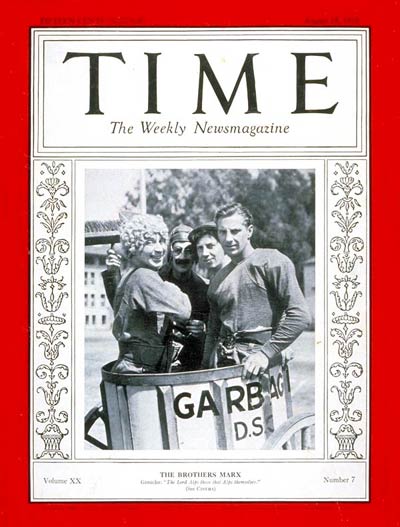|
A Night At The Opera (film)
''A Night at the Opera'' is a 1935 American comedy film starring the Marx Brothers ( Groucho Marx, Harpo Marx and Chico Marx), and featuring Kitty Carlisle, Allan Jones, Margaret Dumont, Sig Ruman, and Walter Woolf King. It was the first of five films the Marx Brothers made under contract for Metro-Goldwyn-Mayer after their departure from Paramount Pictures, and the first after Zeppo left the act. The film was written by George S. Kaufman and Morrie Ryskind from a story by James Kevin McGuinness, with additional uncredited dialogue by Al Boasberg. The film was directed by Sam Wood. One of MGM's biggest hits at the 1935 box office, ''A Night at the Opera'' was selected in 1993 for preservation in the National Film Registry by the Library of Congress as being "culturally, historically, or aesthetically significant". [...More Info...] [...Related Items...] OR: [Wikipedia] [Google] [Baidu] |
Sam Wood
Samuel Grosvenor Wood (July 10, 1883 – September 22, 1949) was an American film director and producer who is best known for having directed such Hollywood hits as ''A Night at the Opera (film), A Night at the Opera'', ''A Day at the Races (film), A Day at the Races'', ''Goodbye, Mr. Chips (1939 film), Goodbye, Mr. Chips'', ''The Pride of the Yankees'', and ''For Whom the Bell Tolls (film), ''For Whom the Bell Tolls'''' and for his uncredited work directing parts of ''Gone with the Wind (film), Gone with the Wind''. He was also involved in a few acting and writing projects. As a youth, Wood developed an enthusiasm for physical fitness that persisted into his senior years and influenced his interest in making sports-themed films. Wood advanced from making largely competent yet routine pictures in the 1920s and 1930s to directing several highly regarded works during the 1940s at the peak of his abilities, among them ''Kings Row'' (1942) and ''Ivy (1947 film), Ivy'' (1947). Wood ... [...More Info...] [...Related Items...] OR: [Wikipedia] [Google] [Baidu] |
Margaret Dumont
Margaret Dumont (born Daisy Juliette Baker; October 20, 1882 – March 6, 1965) was an American stage and film actress. She is best remembered as the comic foil to the Marx Brothers in seven of their films; Groucho Marx called her "practically the fifth Marx brother." Early life Dumont was born Daisy Juliette Baker in Brooklyn, New York, the daughter of William and Harriet Anna (née Harvey) Baker. Her mother was a music teacher and encouraged Daisy's singing career from an early age. Career Dumont trained as an operatic singer and actress in her teens and began performing on stage in the US and Europe, at first under the name Daisy Dumont and later as Margaret (or Marguerite - French for Daisy) Dumont. Her theatrical debut was in ''Sleeping Beauty and the Beast'' at the Chestnut Theater in Philadelphia; in August 1902, two months before her 20th birthday, she appeared as a singer/comedian in a vaudeville Vaudeville (; ) is a theatrical genre of variety entertainment ... [...More Info...] [...Related Items...] OR: [Wikipedia] [Google] [Baidu] |
El Camarot Dels Germans Marx
EL, El or el may refer to: Religion * El (deity), a Semitic word for "God" People * EL (rapper) (born 1983), stage name of Elorm Adablah, a Ghanaian rapper and sound engineer * El DeBarge, music artist * El Franco Lee (1949–2016), American politician * Ephrat Livni (born 1972), American street artist Arts, entertainment, and media Fictional entities * El, a character from the manga series ''Shugo Chara!'' by Peach-Pit * El, short for Eleven, a fictional character in the TV series ''Stranger Things'' * El, family name of Kal-El (Superman) and his father Jor-El in '' Superman'' *E.L. Faldt, character in the road comedy film ''Road Trip'' Literature * ''Él'', 1926 autobiographical novel by Mercedes Pinto * ''Él'' (visual novel), a 2000 Japanese adult visual novel Music * Él Records, an independent record label from the UK founded by Mike Alway * ''Él'' (Lucero album), a 1982 album by Lucero * "Él", Spanish song by Rubén Blades from ''Caminando'' (album) * "Él" (Lu ... [...More Info...] [...Related Items...] OR: [Wikipedia] [Google] [Baidu] |
Il Trovatore
''Il trovatore'' ('The Troubadour') is an opera in four acts by Giuseppe Verdi to an Italian libretto largely written by Salvadore Cammarano, based on the play ''El trovador'' (1836) by Antonio García Gutiérrez. It was García Gutiérrez's most successful play, one which Verdi scholar Julian Budden describes as "a high flown, sprawling melodrama flamboyantly defiant of the Aristotelian unities, packed with all manner of fantastic and bizarre incident." The premiere took place at the Teatro Apollo in Rome on 19 January 1853, where it "began a victorious march throughout the operatic world," a success due to Verdi's work over the previous three years. It began with his January 1850 approach to Cammarano with the idea of ''Il trovatore''. There followed, slowly and with interruptions, the preparation of the libretto, first by Cammarano until his death in mid-1852 and then with the young librettist Leone Emanuele Bardare, which gave the composer the opportunity to propose signif ... [...More Info...] [...Related Items...] OR: [Wikipedia] [Google] [Baidu] |
Italo Balbo
Italo Balbo (6 June 1896 – 28 June 1940) was an Italian fascist politician and Blackshirts' leader who served as Italy's Marshal of the Air Force, Governor-General of Libya and Commander-in-Chief of Italian North Africa. Due to his young age, he was sometimes seen as a possible successor of dictator Benito Mussolini. After serving in World War I, Balbo became the leading Fascist organizer in his home region of Ferrara. He was one of the four principal architects (''Quadrumviri del Fascismo'') of the March on Rome that brought Mussolini and the Fascists to power in 1922, along with Michele Bianchi, Emilio De Bono and Cesare Maria De Vecchi. In 1926, he began the task of building the Italian Royal Air Force and took a leading role in popularizing aviation in Italy, and promoting Italian aviation to the world. In 1933, perhaps to relieve tensions surrounding him in Italy, he was given the government of Italian Libya, where he resided for the remainder of his life. Balb ... [...More Info...] [...Related Items...] OR: [Wikipedia] [Google] [Baidu] |
Stateroom Scene
A state room in a large European mansion is usually one of a suite of very grand rooms which were designed for use when entertaining royalty. The term was most widely used in the 17th and 18th centuries. They were the most lavishly decorated in the house and contained the finest works of art. State rooms were usually only found in the houses of the upper echelons of the aristocracy, those who were likely to entertain a head of state. They were generally to accommodate and entertain distinguished guests, especially a monarch and/or a royal consort, or other high-ranking aristocrats and state officials, hence the name. In their original form a set of state rooms made up a state apartment, which always included a bedroom. British Isles In Great Britain and Ireland in particular, state rooms in country houses were used occasionally, and only rarely all round the year. The occupier of the house and his family actually lived in other apartments in the house. And unlike the main rece ... [...More Info...] [...Related Items...] OR: [Wikipedia] [Google] [Baidu] |
Dresser (theatre)
A dresser is a theatrical stagehand who is involved with maintaining costume quality at each performance. They are hired by either the director, producer, or wardrobe supervisor. They report directly to the wardrobe supervisor and are usually paid by the hour. See also * List of theatre personnel * ''The Dresser'', a 1980 play about a dresser, afterwards adapted for the cinema (1983) and television (2015) * ''Hamlet's Dresser ''Hamlet's Dresser'' is a memoir by Bob Smith. It was first published in 2002. The title derives from the author's work as a dresser for a production of ''Hamlet'' at the American Shakespeare Theatre in Stratford, Connecticut. Author R ...'', a 2002 memoir by a dresser Stage crew Theatrical occupations {{Job-stub ... [...More Info...] [...Related Items...] OR: [Wikipedia] [Google] [Baidu] |
Enrico Caruso
Enrico Caruso (, , ; 25 February 1873 – 2 August 1921) was an Italian operatic first lyrical tenor then dramatic tenor. He sang to great acclaim at the major opera houses of Europe and the Americas, appearing in a wide variety of roles (74) from the Italian and French repertoires that ranged from the lyric to the dramatic. One of the first major singing talents to be commercially recorded, Caruso made 247 commercially released recordings from 1902 to 1920, which made him an international popular entertainment star. Biography Early life Enrico Caruso came from a poor but not destitute background. Born in Naples in the via Santi Giovanni e Paolo n° 7 on 25 February 1873, he was baptised the next day in the adjacent Church of San Giovanni e Paolo. His parents originally came from Piedimonte d'Alife (now called Piedimonte Matese), in the Province of Caserta in Campania, Southern Italy. Caruso was the third of seven children and one of only three to survive infancy. There i ... [...More Info...] [...Related Items...] OR: [Wikipedia] [Google] [Baidu] |
Library Of Congress
The Library of Congress (LOC) is the research library that officially serves the United States Congress and is the ''de facto'' national library of the United States. It is the oldest federal cultural institution in the country. The library is housed in three buildings on Capitol Hill in Washington, D.C.; it also maintains a conservation center in Culpeper, Virginia. The library's functions are overseen by the Librarian of Congress, and its buildings are maintained by the Architect of the Capitol. The Library of Congress is one of the largest libraries in the world. Its "collections are universal, not limited by subject, format, or national boundary, and include research materials from all parts of the world and in more than 470 languages." Congress moved to Washington, D.C., in 1800 after holding sessions for eleven years in the temporary national capitals in New York City and Philadelphia. In both cities, members of the U.S. Congress had access to the sizable colle ... [...More Info...] [...Related Items...] OR: [Wikipedia] [Google] [Baidu] |
National Film Registry
The National Film Registry (NFR) is the United States National Film Preservation Board's (NFPB) collection of films selected for preservation, each selected for its historical, cultural and aesthetic contributions since the NFPB’s inception in 1988. History Through the 1980s, several prominent filmmakers and industry personalities in the United States, such as Frank Capra and Martin Scorsese, advocated for Congress to enact a film preservation bill in order to avoid commercial modifications (such as pan and scan and editing for TV) of classic films, which they saw as negative. In response to the controversy over the colorization of originally black and white films in the decade specifically, Representatives Robert J. Mrazek and Sidney R. Yates introduced the National Film Preservation Act of 1988, which established the National Film Registry, its purpose, and the criteria for selecting films for preservation. The Act was passed and the NFR's mission was subsequently r ... [...More Info...] [...Related Items...] OR: [Wikipedia] [Google] [Baidu] |
Zeppo Marx
Herbert Manfred "Zeppo" Marx (February 25, 1901 – November 30, 1979) was an American comedic actor, theatrical agent, and engineer. He was the youngest and last survivor of the five Marx Brothers. He appeared in the first five Marx Brothers feature films, from 1929 to 1933, but then left the act to start his second career as an engineer and theatrical agent. Early life Zeppo was born in Manhattan, New York City, on February 25, 1901. His parents were Sam Marx (called "Frenchie" throughout his life), and his wife, Minnie Schönberg Marx. Minnie's brother was Al Shean, who later gained fame as half of the vaudeville team Gallagher and Shean. Marx's family was Jewish. His mother was from East Frisia in Germany and his father was a native of Alsace, France, and worked as a tailor. Name As with all of the Marx Brothers, different theories exist as to where Zeppo got his stage name: His older brother Groucho said in his Carnegie Hall concert in 1972 that the name was derived fr ... [...More Info...] [...Related Items...] OR: [Wikipedia] [Google] [Baidu] |

_2_cropped.jpg)




